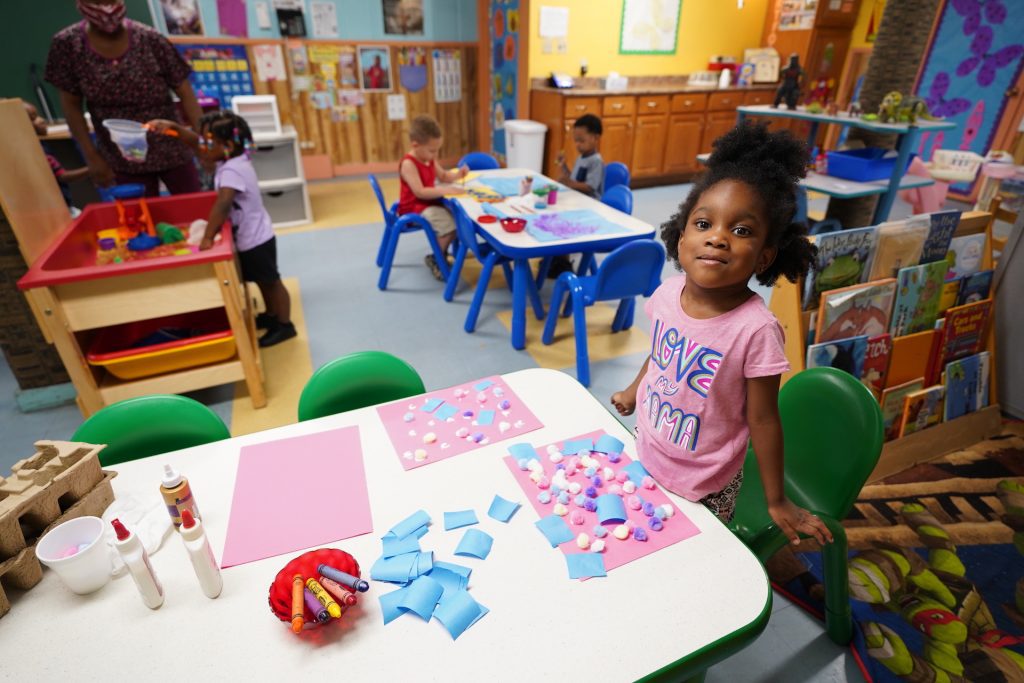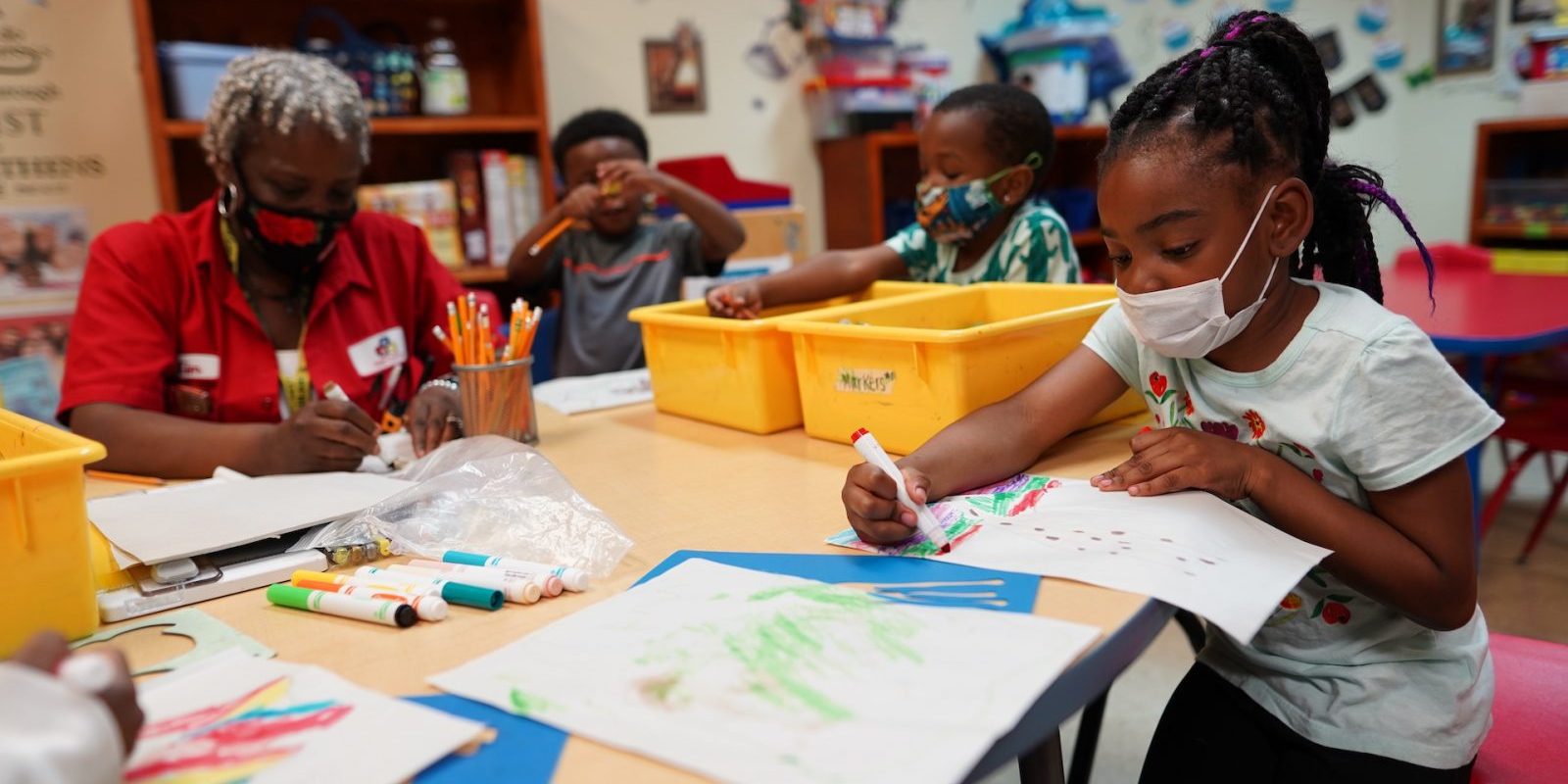What’s possible when a community comes together around a shared vision, uses data to make decisions and invests in creating lasting change? In Milwaukee, more kids are getting the early care and education they need, students are getting funding for opportunities after high school, voices from across the community are reflected in decisions and more.
This work is being led by Milwaukee Succeeds, a member of the StriveTogether Cradle to Career Network. In a recent assessment against the benchmarks of the StriveTogether Theory of ActionTM, Milwaukee Succeeds earned the Systems Change designation. This marks an important step in the organization’s progress to improve outcomes for kids.
Creating a shared community vision
Milwaukee Succeeds brings together partners from across the community — housing, business, health care, education and more. Instead of competing for resources, partners combine contributions toward the same outcomes. This collaboration was clear at the start of the pandemic.

Some child care providers weren’t formally identified as first responders, so they didn’t have access to the equipment they needed to provide safe care. Milwaukee Succeeds brought together community organizations to support these providers, including securing funding for PPE and helping distribute it. The organization regularly brings the community together to talk about challenges and how to address them in innovative ways.
The voices of youth influence decision making, too. Last year, Milwaukee Succeeds convened the Design Your Future Summer Fellowship to support youth leadership and decision making. Their work helped set Milwaukee Succeeds’ strategies for high school success for Black male students. Now, in the Youth Forward MKE Coalition, Youth Ambassadors work with partner organizations to implement these strategies.
Leading with data through evidence-based decision making
Milwaukee Succeeds backs up their focus on equity by using data to target strategies. Milwaukee Succeeds developed a robust data infrastructure, including an early child care dashboard available on their website. The dashboard shares information like child care costs, access to child care by zip code and the locations of child care deserts. This dashboard helps partners target funding where it’s needed most.
Milwaukee Succeeds’ Early Childhood Education Coalition Data Workgroup also expanded its data capabilities by accessing Milwaukee-specific data. Previously, only state and regional data were available. Increased data specificity allowed the workgroup to analyze the demographics, compensation and career aspirations of the early child care workforce. The data was used to advocate for the city’s $7 million investment in the early child care workforce through the American Rescue Plan Act (ARPA). This funding will invest in stipends to improve compensation and retention within the early child care workforce, along with strengthening and diversifying pathways into the workforce.
 Making it possible with collaborative action
Making it possible with collaborative action
Across Milwaukee, collaboration leads to shifts in policies, practices, resources and power structures to put kids and families first. Partners test and adapt strategies, working together across sectors, to better serve the community.
For instance, the citywide FAFSA completion rate was just 38% in 2017. Milwaukee Succeeds gathered K-12 partners to improve this outcome. After two years of supporting schools, testing strategies and sharing data, partners increased the citywide rate to over 70%. To make these changes stick, Milwaukee Succeeds supported partners to advocate for institutional policy changes to provide schools with student-level FAFSA data. Locally, Milwaukee Public Schools just announced it was making FAFSA completion a requirement for graduation.
In advocating for policy shifts, Milwaukee Succeeds makes sure that the community is guiding the work through efforts like the Parents Advocating for Child Care Fellowship. This fellowship is an eight-month virtual training program for parents to explore what’s working and what’s not working in child care and to learn how to advocate for change.

Four Cradle to Career Network members, including Milwaukee Succeeds, make up the Wisconsin Partnership — a coalition that’s advocating for state-level policy changes. They brought early child care providers and parents to the decision-making tables. The Wisconsin Partnership informed how the state allocated federal COVID-19 relief funding to support child care, including the Child Care Counts Payment program, which has supported 3,600 child care programs across the state.
Building a stronger future through investment and sustainability work
Milwaukee Succeeds backs up the community’s shared vision by aligning public and private resources to support what matters most to kids and families.
The organization centers the perspectives of providers, who are largely women of color, in determining how early child care resources are secured and distributed. Milwaukee Succeeds was also instrumental in creating the community-centered grantmaking model for the MKE Response Fund, which provided over $6 million in grants based on the recommendations of partners and community members. This model is being continued by the Greater Milwaukee Foundation, which is putting youth in charge of funding that impacts them.
Milwaukee Succeeds supports partners from across the community to collaborate toward their shared vision: the success of every child. They’re changing systems to build lasting, stronger futures through shifts in policies, resources, practices and power structures, and their work is making an impact for kids and families in Milwaukee.
Learn more about Milwaukee Succeeds from this case study focused on their work to support an equitable recovery from COVID-19 through access to safe, affordable child care.






